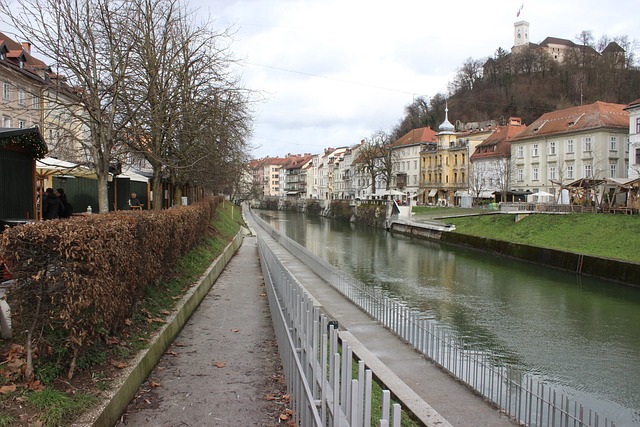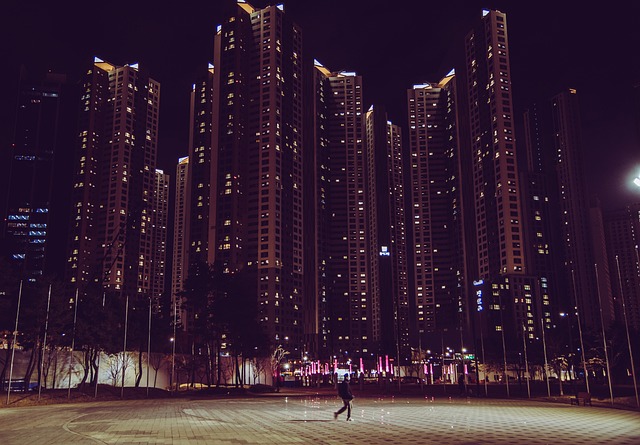Karachi, Pakistan's economic hub, faces recurring electricity load shedding, particularly in areas like Abul Hassan Isphani Road, due to aging infrastructure and a growing population. This issue disrupts daily life for residents and businesses, leading to adaptations like energy-saving measures and backup power solutions. While local authorities promise improvements through infrastructure upgrades, renewable energy, and smart grid technology, frequent power cuts continue to impact Karachi's economy and lifestyle.
In Karachi, electricity load shedding has become a persistent challenge, particularly along Abul Hassan Isphani Road. This article delves into the complex issue, exploring its impact on residents and businesses. We analyze the root causes behind frequent power outages in the area and offer practical strategies to cope with this daily inconvenience. Additionally, we examine official responses and future plans aimed at securing a reliable power supply for Karachi’s bustling metropolis. Understanding these factors is crucial for navigating the city’s ever-changing energy landscape.
- Understanding Electricity Load Shedding in Karachi
- Impact on Residents and Businesses Near Abul Hassan Isphani Road
- Causes of Frequent Power Outages in the Area
- Strategies to Cope with Load Shedding in Daily Life
- Official Responses and Future Plans for Reliable Power Supply
Understanding Electricity Load Shedding in Karachi

Electricity load shedding is a common issue faced by residents and businesses in Karachi, particularly in areas like those near Abul Hassan Isphani Road. This phenomenon refers to the practice of temporarily cutting off electricity supply to certain regions to prevent an overload on the power grid. Karachi, being Pakistan’s economic hub, experiences fluctuating electricity demands throughout the day, leading to frequent power cuts.
The city’s aging infrastructure and a growing population have exacerbated the problem. During peak hours, when air conditioning and industrial activities surge, the demand for electricity surpasses supply, prompting utility companies to implement load shedding schedules. This measure helps maintain grid stability by avoiding potential blackouts or severe service disruptions. Residents and businesses in Karachi have learned to adapt, adopting energy-saving practices and backup power solutions to mitigate the impacts of load shedding.
Impact on Residents and Businesses Near Abul Hassan Isphani Road

The intermittent electricity load shedding near Abul Hassan Isphani Road in Karachi has had a significant impact on both residents and local businesses. Regular power cuts disrupt daily routines and pose challenges for homeowners, especially those relying on electric appliances for basic necessities like lighting, heating, and cooling. Students studying at home and remote workers are also affected, as consistent internet connectivity and reliable electricity supply are crucial for their productivity.
For businesses in the area, the situation is even more daunting. Retail stores, restaurants, and service providers depend on constant power to maintain operations, preserve food items, and ensure customer satisfaction. Load shedding can lead to revenue loss, damage to equipment, and an overall decline in business activity. The disruption also affects local markets and trade, as businesses struggle to meet customer demands and keep up with their regular schedules.
Causes of Frequent Power Outages in the Area

The frequent power outages along Abul Hassan Isphani Road in Karachi are a persistent issue, greatly impacting residents and businesses alike. One of the primary causes is the aging infrastructure of the city’s electricity distribution network. Karachi, being one of Pakistan’s most populous urban centers, faces immense pressure on its power supply systems. The existing grid often struggles to meet the growing demand, leading to regular load shedding, especially during peak hours.
Another significant factor contributing to these outages is the lack of adequate maintenance and upgrades to the electricity transmission lines. The heavy load and poor state of these lines result in frequent failures, causing widespread blackouts. Karachi’s unique geographical location and climate also play a role; extreme weather conditions can lead to tree branches touching power lines, causing short circuits and disruptions.
Strategies to Cope with Load Shedding in Daily Life

In Karachi, where electricity load shedding is a common occurrence, coping with unexpected power cuts has become a part of daily life. Here are some practical strategies to navigate this challenge and maintain a sense of normalcy:
Adapt your routines by adopting energy-saving practices. This includes using energy-efficient appliances, turning off lights when not in use, and opting for natural lighting during the day. Smart home devices can also help automate these processes, ensuring comfort while minimizing energy consumption. Additionally, investing in backup power solutions like generators or solar panels can provide relief during prolonged load shedding episodes. Karachiites have become adept at managing their daily tasks, from adjusting meal timings to utilizing portable chargers and preserving perishable food items during power outages.
Official Responses and Future Plans for Reliable Power Supply

In response to the persistent electricity load shedding along Abul Hassan Isphani Road in Karachi, local authorities and power distribution companies have promised to address the issue as a top priority. The frequent power cuts have caused significant inconvenience for residents and businesses alike, prompting official statements assuring improved infrastructure and capacity expansion plans. These initiatives aim to enhance the city’s overall power supply reliability, ensuring a more consistent and stable energy source for all areas in Karachi.
The future strategies involve upgrading existing power plants, integrating renewable energy sources, and implementing smart grid technology. By investing in these modern solutions, officials hope to mitigate the challenges posed by peak demand and reduce the likelihood of widespread load shedding. Residents are encouraged to stay updated on official announcements regarding progress while also adopting energy-efficient practices to contribute to a more stable power grid in the vibrant metropolis of Karachi.
In conclusion, electricity load shedding near Abul Hassan Isphani Road in Karachi remains a persistent challenge, impacting residents’ daily lives and businesses. Understanding the root causes, including grid congestion and inadequate infrastructure, is crucial for implementing effective strategies to cope. Official responses and future plans focusing on expanding capacity and enhancing network efficiency are essential steps towards ensuring a reliable power supply for all Karachis. By combining community efforts with official initiatives, we can strive for a more stable and accessible energy landscape in the city.

Leave a Reply
You must be logged in to post a comment.